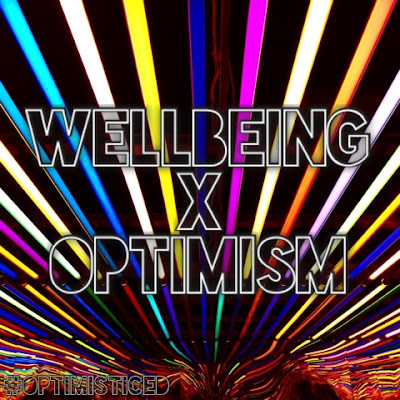 Thanks to February I've racked up a fair few blog posts now and in looking back over them I can see there are definite recurring themes. This, of course, is deliberate; I want my posts to have a united focus and I want my blog to have consistency. But in review, I was left asking myself a question:
Thanks to February I've racked up a fair few blog posts now and in looking back over them I can see there are definite recurring themes. This, of course, is deliberate; I want my posts to have a united focus and I want my blog to have consistency. But in review, I was left asking myself a question:'What does wellbeing have to do with optimism?'
I've written a lot about achieving a good work/life balance and its obvious link to wellbeing. I've also written a lot about being positive and optimistic about teaching (here, here and here, for example). But what's the link?
In a nutshell I propose that the better your work/life balance and the better your wellbeing, the more positive and optimistic you'll be. Stands to reason, doesn't it? But could it be the other way round? If you are more positive and optimistic could your work/life balance and wellbeing be better? Let's explore.
Apparently (and almost certainly unsurprisingly) negativity is one of the key indicators of fatigue. And we've all experienced that, haven't we? When we're tired it's very hard to look on the bright side of life. And teachers are tired, tired people. Especially the ones who for one reason or another have a poor work/life balance. A lack of clearly-defined boundaries between work and personal life leads to emotional stress and even anxiety and depression. And it's hard to feel positive at times when you're experiencing stress.
Interestingly, a quick google search of 'negativity and stress' reveals much about how stress can be caused by negativity. There are several articles suggesting that conditioning yourself to think more positively can reduce levels of stress. Of course, I would never prescribe positive thinking on its own; it has to be accompanied by practical doing. So if you took a few practical steps to improve your work/life balance and began to engender positive thinking at the same time, research and experience shows that you would feel less stressed. And if you were less stressed? What then? Well it would surely lead to more positivity and a snowballing optimism.
But that doesn't necessarily lead to better work/life balance and wellbeing, does it? Well, effective and dynamic optimists will look for solutions in difficult circumstances. Yes, there are arguments that pessimists identify problems and therefore make contingency plans but in the heat of a moment one with an optimistic outlook will be more likely to believe there is a way forward and to find it. Optimists won't look on workload and believe it is all externally governed, they will take ownership and find ways to make it manageable. In my own experience, dynamic and proactive optimists are more likely to take personal responsibility, ensuring that their wellbeing is factored into the way they organise their life.
So, when optimism is a key characteristic of a person they will experience greater wellbeing as a result. This will perpetuate their optimism which in turn will lead them to seek out more efficient ways of working to ensure their work/life balance is good. Which will make them more optimistic... the whole thing is cyclical. But what if you're not already running in that wheel? Jump on at any point - good habits can be formed. The cycle can be entered at either or both points: practical doing and positive thinking.
What could practical doing look like? See my blog posts:
What could positive thinking look like? See my blog posts:


No comments:
Post a Comment